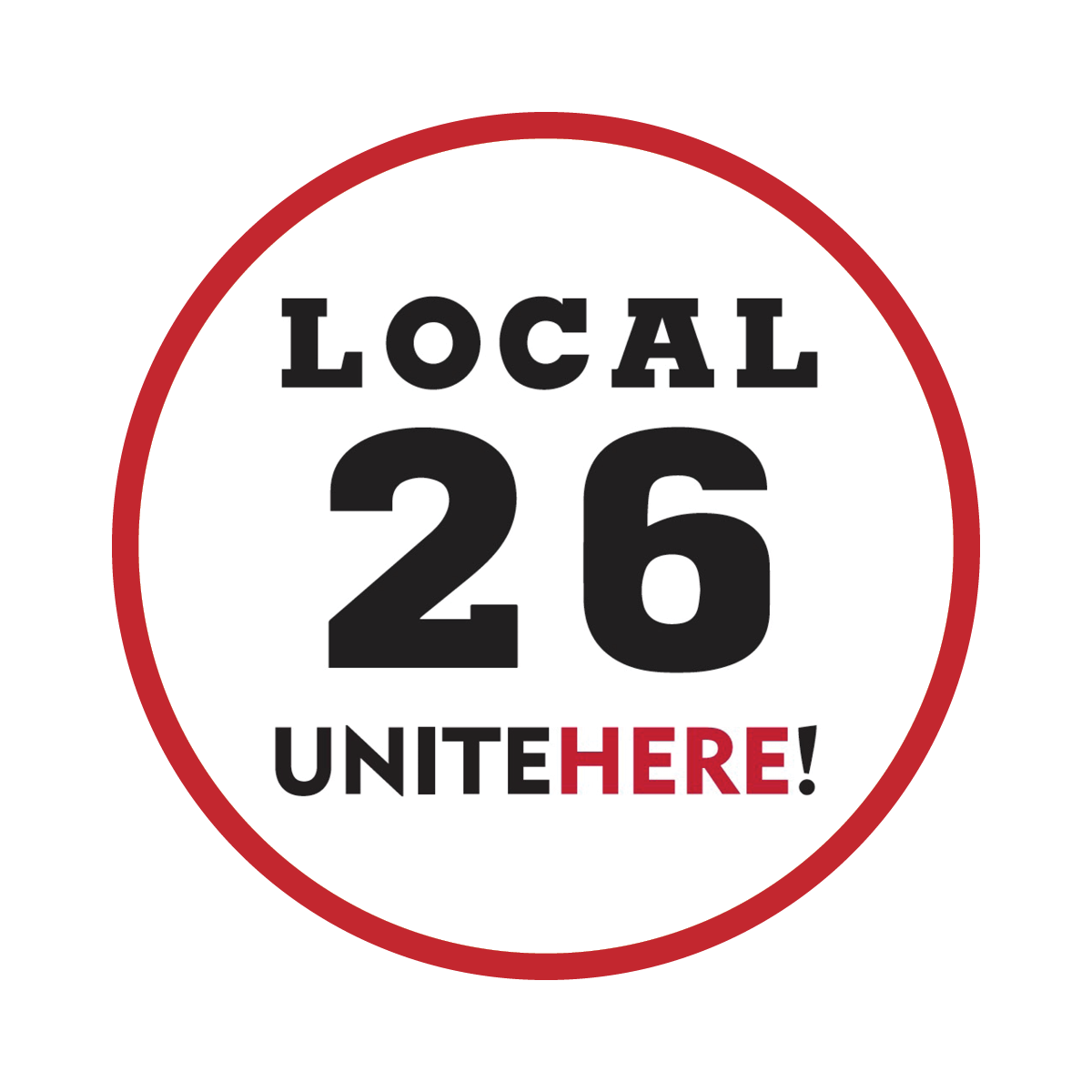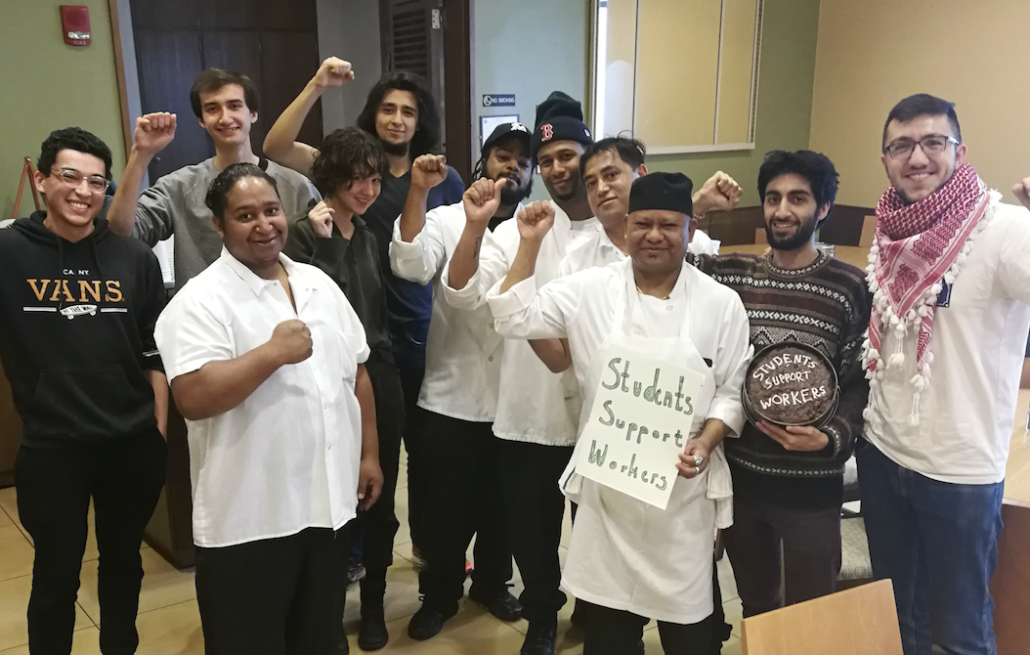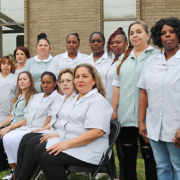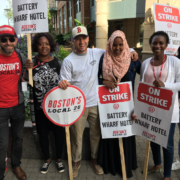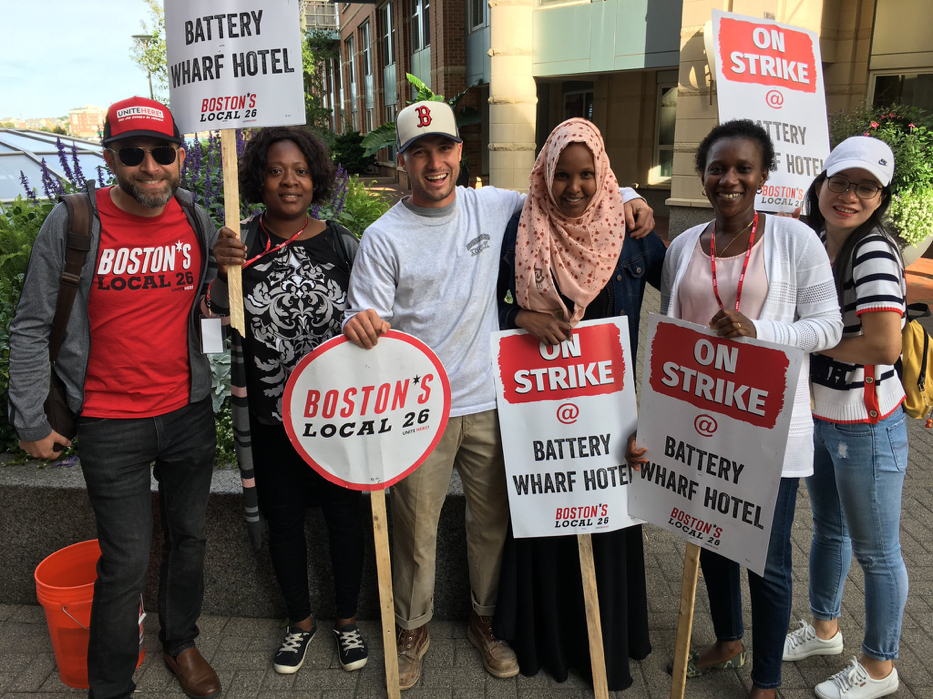UNITE HERE Local 26 Guidelines to Reopening the Hotel Industry
REGARDING THE REOPENING OF THE BOSTON HOTEL INDUSTRY
Carlos Aramayo, President, UNITE HERE Local 26
The public health crisis caused by COVID-19 has disproportionately impacted UNITE HERE Local 26’s members and their families. As the union representing over 12,000 mostly black and brown members in the hospitality industry, we have suffered the human and financial costs of this pandemic. Almost all of our members are laid off from their jobs at the city’s hotels, universities, airport, and casino. The few members who are still at work face a dangerous environment on the front lines, with dozens becoming ill and at least one having died.
As the hotel industry contemplates reopening in Boston, UNITE HERE Local 26 believes the lives of our members, their families, and the public are more valuable than the bottom line of hotel owners. Today, in line with this conviction, we are issuing three principles for reopening. They are:
- No hotel should call employees back to work until Governor Baker rescinds COVID-19 Order No. 13 and No. 21 as they relate to hotels;
- To protect workers and family members who are vulnerable to the virus, and to ensure that they do not have to choose between their health and the unemployment benefits they are receiving, no worker should be forced to return to work until the Massachusetts State of Emergency is lifted, and;
- Hotels must meet UNITE HERE Local 26’s COVID-19 Public Health and Safety Standards to protect the public from this virus.
The Boston hotel industry is not capable of policing itself during this crisis. The Biogen conference at the Marriott Long Wharf contributed to the spread of Covid-19 in Boston and across the United States. Despite this, some hotels remained open weeks after known Covid-19 positive guests stayed at their properties. Only the shut-down interventions by Mayor Walsh and Governor Baker prevented many more of our family members from getting sick. Now, as the industry contemplates returning to work, we need to put the health of our members, families, and the travelling public ahead of corporate profits.
By following these standards, we can protect our members’ and the public’s health and begin the process of reopening our economy.
UNITE HERE LOCAL 26 COVID-19 HEALTH AND SAFETY STANDARDS
Cleaning standards – Each hotel shall establish, implement, and maintain written cleaning standards designed to reduce the transmission of SARS-CoV-2. The standards shall provide for disinfection of porous and non-porous materials using appropriate EPA-registered disinfectant products that have qualified for use against SARS-CoV-2. Standards should include but not be limited to:
(1). High-contact Public Areas – areas such as door and door handles, light switches, elevator buttons, countertops, furniture, ice and vending machines should be cleaned after every guest use.
(2). Guest rooms – All surfaces in guest rooms shall be cleaned and disinfected on a daily basis. In order to ensure thorough cleaning of guest rooms operators should provide ample time for room cleaners to clean each room and should not offer any incentive to any guest for declining guest room cleaning per World Health Organization guidance.
(3). Front desk – Plexiglass shields or other appropriate barriers shall be installed at the front desk in order physically to separate guests and employees.
Controls for preventing transmission of SARS-CoV
(1). Employees and guests remain at least six feet apart from other employees and guests while performing their assigned work and during breaks. In no event shall any employee be required to work within six feet of, or in the same guest room as, any guest.
(2). Paid handwashing breaks shall be scheduled for employees at least every hour at a washing facility supplied with soap. At other times, employees shall have access to hand sanitizer in proximity to their work area such that they do not have to interrupt their normal duties to access it.
(3). N-95 masks and latex gloves masks shall be provided to employees, at no cost to the employee. N-95 and latex gloves shall be made available to guests.
(4). Time-keeping mechanisms shall not require a direct contact between an employee and the mechanism, such as finger swipe identification systems.
(5). Employees scheduled in teams that will operate separately from each other, without any shift overlap. Once assigned to a team, the hotel shall not switch employees to a different team or shift.
(6). Any employee shall receive paid time to undergo testing. Any employee diagnosed with COVID-19 shall be entitled to take an additional 24 days off with pay.
No Retaliation – No person shall discharge, reduce in compensation, increase workload, impose fees or charges, change duties or otherwise take adverse action against any employee for following any practice proscribed here
Training – All employees shall receive training in the above
